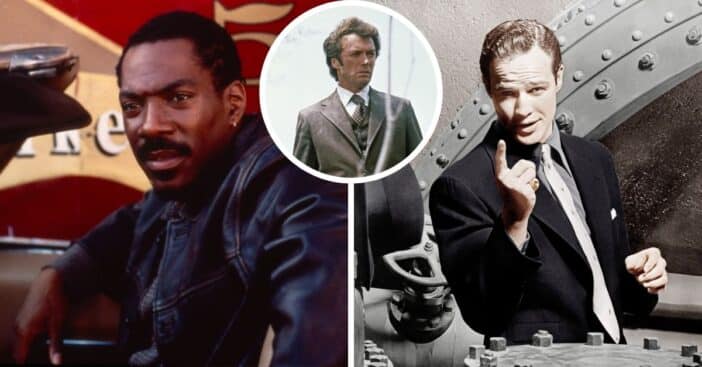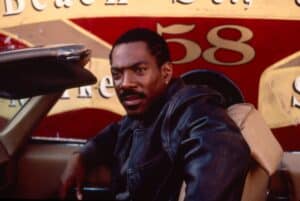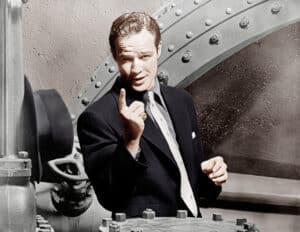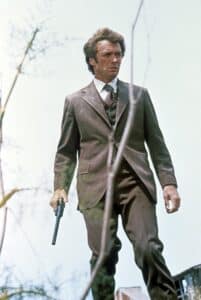
They may icons of the industry who would have made a dream team in a collaboration. But, according to comedian Eddie Murphy, there were no fond feelings between Marlon Brando and Clint Eastwood, with the former unable to even “stand” the Spaghetti Western icon.
63-year-old Murphy recently sat down for a chat with the New York Times podcast The Interview. There, he shared memories of visiting Brando at his home not long after his first film role, which came in 48 Hrs., released in 1982. Brando had no trouble getting candid about that revolutionary Western actor Eastwood, though his opinios reportedly were not high at all.
Eddie Murphy recounts Marlon Brando speaking wtih dismissal about Clint Eastwood

94-year-old Eastwood rose to fame by the mid-1960s as the Man with No Name in the Dollars Trilogy by Sergio Leone. His roles would show off a twist on the heroes of the genre that actors like John Wayne put forth, with Eastwood’s injecting some gray morality into their actions. Not everyone was a fan, however.
RELATED: The Truth Behind Frank Sinatra And Marlon Brando’s Feud
Recounting his conversation with Brando, Murphy shared, “This is how long ago it was: He was going, ‘I can’t stand that kid with the gun.’”
He went on, “I was like, ‘What kid with the gun?’ He said, ‘He’s on the poster!’ I was like, ‘Clint Eastwood?’ ‘Yeah, that guy!’ He was calling Clint Eastwood ‘that kid.’”
Brando was older than Eastwood by six years.
Enemies in high places

It’s unclear where Brando’s grievances with Eastwood stem from, and he did not share any specifics with Murphy about “that kid.” But the Duke was vocal enough for him and The Godfather star put together.
In this case, we know Wayne’s dislike of Eastwood stemmed, in part, from Wayne’s traditionalist view of the Western genre and the unwavering moral code the “good guys” followed. Eastwood would defend his approach to filmmaking, embracing the idea of nuance, overarching themes, and moral complexity—and even moral messiness.

Eastwood accepted that he and Wayne came from two different schools of thought, musing in his book Ride, Boldly Ride: The Evolution of the American Western that he “realized that there’s two different generations, and [Wayne] wouldn’t understand what I was doing.”

